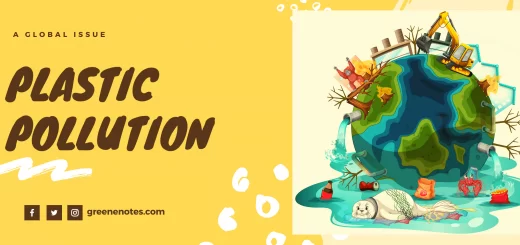Substitutes of Plastics: Sustainable and Eco-friendly

From 1950 to 2015, nearly 6.3 billion tons of plastic wastes are generated, and it’s rising at a constant rate. Worldwide every day around 1.3 billion plastic bottles are sold. Now, plastic products are everywhere in our daily life. We use plastics to conserve food, cloths (nylon and polyester), and to defend staff from harmful viruses like Covid-19.
However, still, we are incapable to recycle and reuse all plastic materials. Only 9% of plastic wastes are recycled and it is sorrowful that all these are downcycled to lower quality products. While the rest are disposed to landfill, incineration of thrown to the ocean. All together are causing severe environmental, social, and economic problems.
To substitute these unsustainable fossils fuel-based plastic products, many innovations are trying to innovate bio-plastics or another possibility of plastics derived from a renewable resource; which are readily biodegradable and recyclable through the value chain. Nevertheless, it is hard to swap this big industry, but it is easier to find sustainable alternatives, adopt them, and implement them in our daily uses.
Stainless steel
It can be used as an alternative to single-use cups, kitchen plastic staff to store food. Furthermore, it is easy to clean up and reusable.
Glass
Glass is not biodegradable but fully recyclable. Glass can be used for many purposes like food packaging, storing foods, drinks, leftovers, etc.
Platinum silicone
Flexible and durable material platinum silicone is mainly made of sand which is also heat tolerant. It can use to cook, bake, and boil.
Beeswax-coated cloth
This easily usable and cleanable product is a substitute for plastic wrap and bags.
Natural fiber cloth
Different organic cotton, wool, and bamboo can use to generate sustainable clothing, One of the many benefits of it they are compostable and can reuse later.
Wood
Wood is one of the renewable resources from sustainably managed forests. It can use as a substitute for plastic materials like toothbrushes, cleaning brushes, kitchen utensils, planting materials, and cutting boards.
Bamboo
Bamboo is another renewable resource that is lightweight, durable, and compostable. It grows fast and eco-friendly that used as a step for watershed management. It can use in items like drinking straws, tableware, furniture, food storage, and decorating a house.
Paper
Paper is the alternative to plastic packaging and most of the time it is reused and composted than recycled.
Cardboard
Nowadays many companies are packaging their products with cardboard which is fully compostable. Besides, cardboard can be reused again in many household works.
Natural alternative packaging
Banana leaves, mushroom packaging, seaweed-based packaging, pressed hay are some of the examples of natural alternative packaging which are derived from nature and after using biologically degraded and get back to nature again.
Jute products
Jute products are one of the increasing industries and these products are also durable, reusable, and compostable.
Compostable trash bags
A lot of focus is needed to trash bags which are made of plastics and regular generating waste material. These compostable trash bags from potato starch can be one of the solutions.
Innovative milestone: an alternative to plastics
Olive pits
Biolive, a Turkish startup began to use byproducts from olive oil production to generate cost-efficient bio-plastic granules. These granules contain an active ingredient named oleuropein that extends its lifespan and the material may take a year to decompose. The use of olive oil wastages production cost can reduce up to 90% than some of the existing bio-plastics.
Sunflower hulls
A German startup called Golden Compound has invented a unique sustainable bio-plastic from the husks of sunflower seeds. This 100% recyclable bio-plastic can be molded into everything like furniture, storage boxes, etc. and that is also compostable at home.
Fish waste and algae
Marina Tex, a UK initiative is utilizing fish skin and scales integrating with red algae to produce compostable plastics. In the UK, annually 500,000 tons of wastes are generated from fish refuses. This organic waste can be transformed into stronger, durable, and strength packaging than conventional plastic bags.
Plant Sugars
Polyethylene furanoate or PEF is a biodegradable packaging material generated from plant-based sugars by Amsterdam-based Avantium. PEF is biodegradable within 250-400 days and can use as a textile, film that contains the great potential to use in the packaging of water, beverages, juices, and soft drinks.
Mushrooms
Reishi an emerging brand is creating a sustainable and versatile fine mycelium leather which is a substitute for plastic. This water-resistant biomaterial has a promising performance in both quality and aesthetics having a negative carbon footprint.
Store bags from starch
EnviGreen is an Indian company that has originated an alternative to plastic bags. It innovated bags made of starch and vegetable oil derivatives that can also be eaten by animals. Moreover, if animals don’t eat them, within a day these eco-friendly bags will get dissolve.
Eco-friendly conditioner bars
The beauty company in New Zealand is the country’s most sustainable business that produces eco-friendly conditioner bars from coconut oil, kiwifruit seed oil, essential oils, and cocoa butter. One solid shampoo bar equals five bottles of liquid versions which are also available in conditioners, lotions, and face washes.
Sanitary napkins from plants
A single pad is about 90% plastic that takes 500 to 800 years to decompose. While it is about women’s hygiene and every day millions of pads are used throughout the entire world. Heyday uses corn and bamboo fiber to make sanitary napkins and pads that are decomposable within 6 months after disposal.
Edible water bottles
Bottles made from seaweed extract, a plant-based material are possible to eat after drinking the water. Is it amazing to you? If one doesn’t wish to eat the packaging, one can throw it. And this edible water bottle degrades within six weeks compared to conventional 450 years of plastic bottles.
Natural scrub sponges
How many people are aware of the cleaning of kitchen sponges in boiling water or microwave to kill the bacteria? But all these are replaced frequently and if we count them all together, it means a lot of plastic wastes. Natural scrub sponges can be a better selection to use which is made from plants, durable, and 100% degradable.
Menstrual cup
The menstrual cycle is natural for every woman that lasts for 4-5 days, or even a week. If we tally the number of pads and tampons required every month, which encompasses up to 90% plastic and disposed to landfill every year; it will be huge! The menstrual cup is reusable and gotten familiarity, as well as the cup, can hold three times much liquid than tampon.
Dog waste bag
Now, most households own one or more dogs and they need to take a walk at least twice a day. But the wastages from dogs are collected in plastic bags and thrown. Dog waste bags are washable, reusable, and sustainable.
It is difficult to substitute plastic so easily but it is more convenient to alter our consumption behaviors of using plastic products. The further we reuse, recycle our materials, and choose durable plastic-free products; the more we are taking a pace to create a plastic-free planet. So, pick products and goods that are green, reusable, plastic-free, and take action for the planet.






